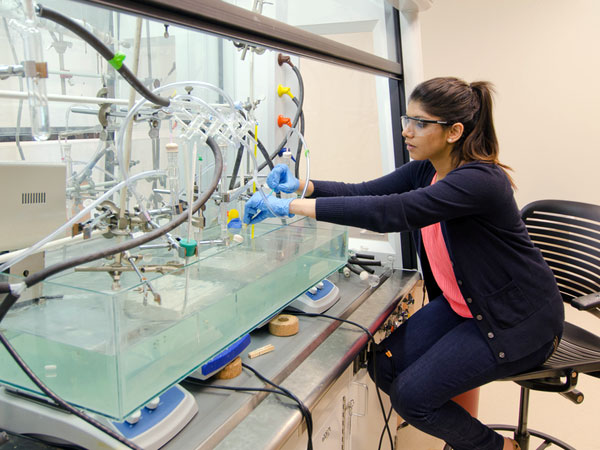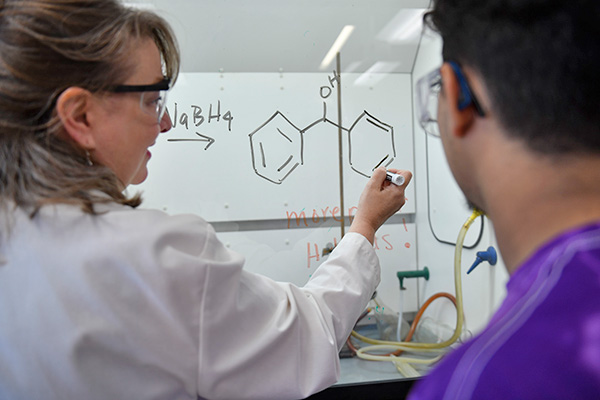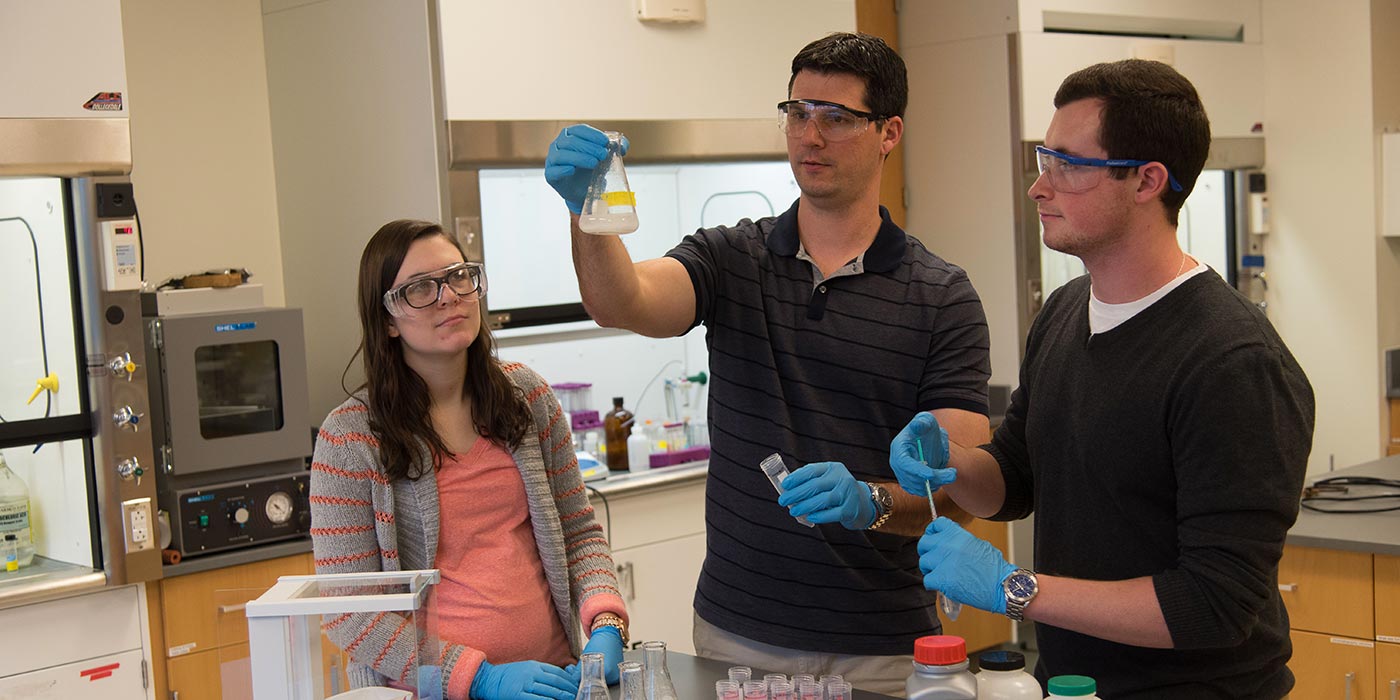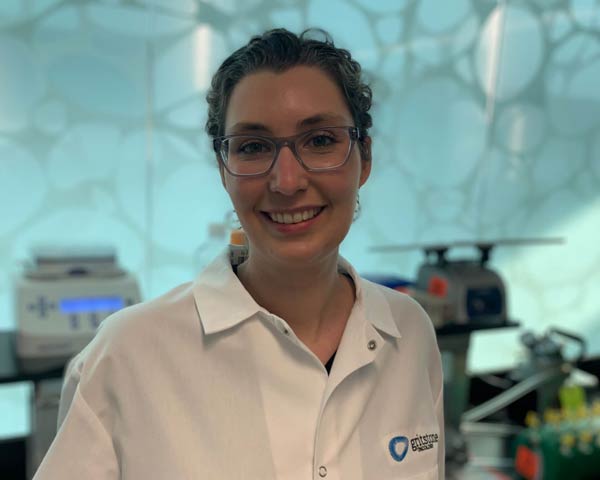Biochemistry
Bachelor of Science
Overview
Biochemistry, the study of the molecular basis of biological processes in living organisms, seeks to explain how a collection of atoms like carbon, hydrogen, oxygen, and nitrogen interact to build the biomolecules necessary for life.
It is a growing discipline that provides insight into the related fields of genetics, immunology, microbiology, cell biology, and physiology. It advances our understanding of the chemical reactions and molecular interactions that govern living organisms and makes important contributions to the fields of medicine, agriculture, nutrition, and even our criminal justice system.
The biochemistry degree program at Nazareth University provides opportunities for experiential learning such as undergraduate research, problem-based learning, and internships. Nazareth faculty mentor students on research projects such as the development of biofuels, characterization of proteins involved in blood coagulation, design of synthetic transcription factors, and analysis of small molecules in the spore-forming bacteria Bacillus subtilis.
In addition, students participate in undergraduate summer research programs across the U.S. and abroad. Our biochemistry major prepares students for careers and graduate studies in a variety of fields including research, business, law, education, medicine, pharmaceutical sales, and other health-related professions.
Highlights
- Biochemistry majors receive individualized attention from faculty through close supervision and guidance of research projects.
- Approved by the American Chemical Society.
- Extensive training in modern lab techniques as well as experience managing projects.
- Courses on reading and writing skill development so students learn how to communicate like scientists.
- Community service projects including mentoring young students at the Rochester Museum and Science Center and Lab Day.
- Use top-notch equipment in Nazareth's Peckham Hall, ranked among the top 20 science labs in the nation by The Princeton Review.
Program Details
Fully immersed
Conduct research with faculty during your very first year at Nazareth
Gain hands-on experience with research-grade, state-of-the-art instrumentation
Work in the lab and in the field to tackle problems in scope from micro to global
Present research at local, regional, & national American Chemical Society meetings
Undergraduate Research Topics
- HIV drug therapy
- Cancer research
- Tobacco smoke exposure
- Dopamine receptor research
$4,000
UP TO $4,000 TO INVEST IN YOU
Unique to Nazareth, our SPARK Grant provides $1,500 for you to pursue internships, research, and study abroad, plus up to $2,500 in a tuition scholarship for summer SPARK-eligible experiences that earn credit. SPARK stories »



Careers
- Medicine
- Environmental careers
- Research science
- Biomedical technology
- Pharmaceutical sales
- Drug manufacture and design
- Agricultural research
Employers/Graduate schools
- Yale University
- University of Rochester School of Medicine
- University of Connecticut Health Center
- Oregon Institute of Technology
- University of North Carolina
- Syracuse University
- University at Buffalo

Alumni Spotlight
Molly Kingsley '13, scientist at Gritstone Bio, Cambridge, MA, working on immunology discovery to help design new vaccines for cancers and infectious diseases
“The independent research opportunities make the Naz biochemistry program particularly strong. I jumped into research during my freshman year (how to make biodiesel fuel using Tungsten-based catalysts) and learned how to ask scientific questions and then design experiments to answer them. Asking good questions is one of the most valuable skills a scientist needs. At Naz you will get to drive your project; you won’t be working under (or for) a graduate student. I did 3.5 years of independent research (including two summers), completed a math minor, and was able to spend a semester abroad in Italy. Right from day one, Naz heard my goals and helped me figure out a way to do it all.”